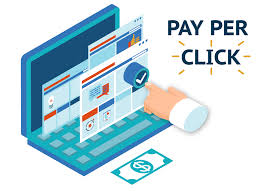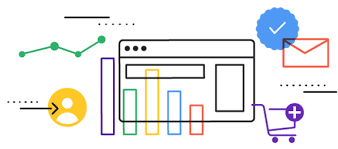The Role of a Digital Marketing Strategist at Google
In the fast-paced world of digital marketing, Google plays a central role in shaping strategies and driving success for businesses online. A Digital Marketing Strategist at Google is a key player in helping companies navigate the complexities of the digital landscape and achieve their marketing objectives.
Responsibilities of a Digital Marketing Strategist at Google
One of the primary responsibilities of a Digital Marketing Strategist at Google is to develop and implement comprehensive digital marketing campaigns that leverage Google’s suite of tools and platforms. This includes creating targeted advertising campaigns on Google Ads, utilising data insights from Google Analytics to optimise performance, and maximising visibility through organic search with SEO best practices.
Furthermore, a Digital Marketing Strategist at Google is tasked with staying abreast of industry trends and updates to ensure that their strategies are cutting-edge and effective. They must also collaborate with cross-functional teams to align marketing efforts with overall business goals and drive growth.
Skills Required for Success
To excel as a Digital Marketing Strategist at Google, individuals need a combination of technical expertise, analytical skills, and creativity. Proficiency in using tools such as Google Ads, Google Analytics, and Search Console is essential, as is the ability to interpret data to make informed decisions.
Moreover, strong communication skills are vital for effectively conveying strategy recommendations to stakeholders and driving consensus within teams. Adaptability and a willingness to learn are also crucial traits for navigating the ever-evolving digital landscape.
The Impact of a Digital Marketing Strategist at Google
A skilled Digital Marketing Strategist at Google can make a significant impact on the success of businesses by crafting targeted campaigns that reach the right audiences at the right time. By leveraging Google’s powerful platforms and insights, they can drive brand awareness, generate leads, and ultimately increase conversions for their clients.
In conclusion, the role of a Digital Marketing Strategist at Google is instrumental in helping businesses harness the full potential of digital marketing to achieve their objectives in an increasingly competitive online environment.
9 Essential Tips for Mastering Digital Marketing Strategies with Google
- Stay updated with Google’s algorithm changes to adapt your strategies accordingly.
- Utilize Google Analytics to track website performance and user behaviour.
- Optimize your website for mobile devices as Google prioritizes mobile-friendly sites.
- Create high-quality, relevant content that aligns with Google’s search intent guidelines.
- Implement SEO best practices to improve organic search rankings on Google.
- Use Google Ads effectively to reach targeted audiences and drive conversions.
- Leverage Google My Business for local SEO and enhancing online visibility.
- Regularly monitor and analyse key performance indicators (KPIs) using tools like Google Data Studio.
- Engage with the digital marketing community through platforms like Google forums and webinars.
Stay updated with Google’s algorithm changes to adapt your strategies accordingly.
To thrive as a Digital Marketing Strategist at Google, it is crucial to stay informed about Google’s algorithm changes and updates. By keeping abreast of these developments, strategists can adapt their marketing strategies proactively to ensure optimal performance and visibility online. Being aware of the latest algorithm changes allows them to adjust tactics, refine approaches, and stay ahead of the curve in the dynamic world of digital marketing.
Utilize Google Analytics to track website performance and user behaviour.
To maximise the effectiveness of digital marketing strategies, it is crucial for a Digital Marketing Strategist at Google to utilise Google Analytics to track website performance and user behaviour. By leveraging the insights provided by Google Analytics, strategists can gain valuable data on how users interact with a website, which pages are most popular, where traffic is coming from, and much more. This data allows for informed decision-making and enables strategists to optimise campaigns, improve user experience, and ultimately drive better results for their clients.
Optimize your website for mobile devices as Google prioritizes mobile-friendly sites.
To maximise your digital marketing strategy on Google, it is crucial to prioritise mobile optimization for your website. Given Google’s emphasis on mobile-friendly sites, ensuring that your website is responsive and user-friendly on mobile devices can significantly impact your search engine rankings and overall online visibility. By optimising your website for mobile devices, you not only cater to the growing number of mobile users but also align with Google’s preferences, ultimately enhancing the user experience and driving traffic to your site.
Create high-quality, relevant content that aligns with Google’s search intent guidelines.
To succeed as a Digital Marketing Strategist at Google, it is crucial to create high-quality, relevant content that aligns with Google’s search intent guidelines. By understanding the search intent behind user queries, strategists can tailor content that not only attracts visitors but also provides valuable information that meets their needs. Adhering to Google’s guidelines ensures that the content remains visible and ranks well in search results, ultimately driving organic traffic and engagement for businesses online.
Implement SEO best practices to improve organic search rankings on Google.
By implementing SEO best practices, a digital marketing strategist at Google can enhance a website’s visibility and improve its organic search rankings on the search engine. This involves optimising website content, meta tags, and back-end structure to align with Google’s algorithms and user intent. By focusing on relevant keywords, high-quality content, and user experience, the strategist can drive organic traffic to the site and increase its chances of appearing prominently in search results. This strategic approach not only boosts the website’s online presence but also establishes a strong foundation for long-term success in digital marketing efforts.
Use Google Ads effectively to reach targeted audiences and drive conversions.
Utilising Google Ads effectively is a crucial strategy for Digital Marketing Strategists at Google to reach specific target audiences and boost conversion rates. By crafting targeted ad campaigns that align with audience interests and search behaviours, strategists can maximise visibility and engagement. Leveraging the diverse targeting options within Google Ads, such as demographics, keywords, and remarketing, allows for precise audience segmentation and tailored messaging. This strategic approach not only increases the likelihood of reaching potential customers but also enhances the chances of converting leads into valuable customers, ultimately driving business growth and success in the digital realm.
Leverage Google My Business for local SEO and enhancing online visibility.
To enhance online visibility and improve local SEO efforts, digital marketing strategists at Google can leverage the power of Google My Business. By optimising and regularly updating their business listings on Google My Business, companies can ensure that their information is accurate and up-to-date for potential customers searching for local services or products. This not only helps businesses appear in relevant local search results but also increases trust and credibility among consumers looking for nearby solutions. Utilising Google My Business effectively is a valuable strategy for digital marketing strategists to boost online visibility and drive traffic to physical locations.
Regularly monitor and analyse key performance indicators (KPIs) using tools like Google Data Studio.
To excel as a Digital Marketing Strategist at Google, it is essential to regularly monitor and analyse key performance indicators (KPIs) using tools like Google Data Studio. By tracking metrics such as website traffic, conversion rates, and engagement levels, strategists can gain valuable insights into the effectiveness of their campaigns and make data-driven decisions to optimise performance. Google Data Studio provides a comprehensive platform for visualising and interpreting data, enabling strategists to identify trends, spot opportunities for improvement, and demonstrate the impact of their strategies on business outcomes.
Engage with the digital marketing community through platforms like Google forums and webinars.
To enhance your expertise as a digital marketing strategist at Google, it is essential to engage actively with the digital marketing community through platforms such as Google forums and webinars. By participating in discussions, sharing insights, and learning from industry experts, you can stay updated on the latest trends, best practices, and tools in the dynamic world of digital marketing. Networking with like-minded professionals can provide valuable connections and fresh perspectives that can help elevate your strategies and drive success in your role.



